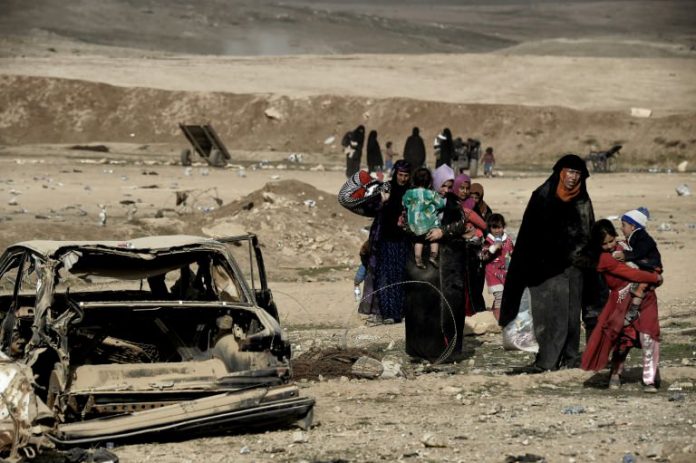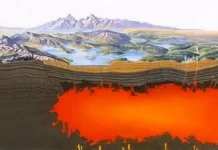Hundreds of Mosul residents continue to flee their homes as Iraqi forces fight to reclaim the city from the Islamic State (IS) group.
The fight to rout the Islamic State from western Mosul is causing higher numbers of displaced people than previously seen in the 4 1/2-month-long offensive for Iraq’s second-largest city, according to the United Nations.
“The situation is a disaster,” said Omar Saabr Hussein, who was among a group of western Mosul residents making their way out Thursday along a highway that has become the main escape path for fleeing families.
“On each street there were four to five car bombs,” he said as he held one of his children in his arms.
Islamic State militants “don’t show mercy to anyone,” he said.
An elderly woman said a single car bomb outside her home killed five of her relatives. “They slaughtered us,” Hafifa Muhammad Saleh said.
The U.N., in a statement released Wednesday, said that 28,400 people have been forced from their homes since the operation began more than a week ago.
Inside Mosul’s Mamun neighborhood, Islamic State fighters trapped deeper inside the city launched salvos of mortar rounds, targeting Iraqi positions and along routes used by civilians.
“There are so many families in Mosul, it turns all of our missions into two missions: protect the civilians and secure our own location,” said Iraqi special forces Lt. Nour Sabah.
Sabah’s men hold an old school building in Mamun from which they can look down into Islamic State positions just a few blocks away.
Despite holding the area for more than three days, Sabah said the Islamic State launched an RPG attack on his forces Thursday that wounded one of his men.
The push to free western Mosul began on Feb. 19. Iraqi forces first retook Mosul airport and the sprawling Ghazlani military base next to it, but are still struggling to secure a strip of the city’s southwestern neighborhoods where dense clusters of houses and thousands of civilians are frustrating the fight.
Mosul’s eastern section – the city is divided by the Tigris River into a western and an eastern half – was declared “fully liberated” in January, after weeks of grueling urban combat. The operation to retake Mosul from the Islamic State was formally launched in October.
The offensive came after the militants were slowly pushed out of most of the territory they overran in the summer of 2014. At the height of the group’s power, the Islamic State controlled nearly a third of Iraq.















